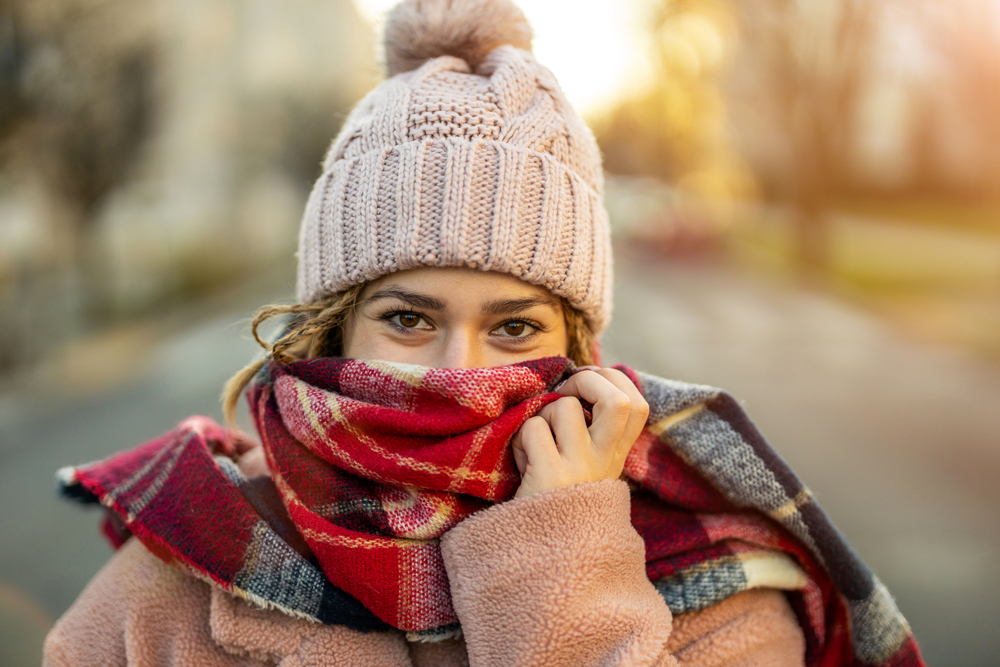
How to Prevent Dry Eye in Cold Weather
As the temperature drops, many of us eagerly embrace the cozy aspects of winter: warm sweaters, hot drinks, and festive holidays. However, the colder months can also bring challenges for eye health, particularly for those prone to dry eye syndrome. The combination of cold outdoor air and heated indoor environments can strip moisture from your eyes, leaving them feeling dry, itchy, and irritated. Here’s how to protect your eyes and keep them comfortable during the chilly season.
Stay Hydrated
Dry air is more prevalent in winter, which can lead to dehydration. While drinking water is essential year-round, it’s especially important during colder months. Proper hydration helps maintain moisture in your eyes and supports overall eye health. Aim for at least 8 glasses of water per day and cut back on diuretics like coffee and alcohol, which can contribute to dehydration.
Invest in a Humidifier
Indoor heating systems can create dry, warm air that exacerbates dry eye symptoms. A humidifier can help restore moisture to the air in your home or office. Place one in the rooms where you spend the most time, such as your bedroom or workspace, to prevent the environment from sapping moisture from your eyes.
Shield Your Eyes Outdoors
Cold, windy conditions can rapidly dry out your eyes when you're outdoors. Protect your eyes by wearing wraparound sunglasses or goggles to shield them from the wind. Not only does this reduce the direct impact of cold air, but it also helps block harmful UV rays that are still present during winter.
Take Breaks from Screens
Spending time indoors often means increased screen time, which can contribute to digital eye strain. Staring at screens reduces your blink rate, which is crucial for spreading tears across the surface of your eyes. Follow the 20-20-20 rule: every 20 minutes, look at something 20 feet away for 20 seconds to give your eyes a break.
Use Artificial Tears or Eye Drops
Artificial tears are a simple and effective way to replenish moisture in your eyes. Use preservative-free eye drops as needed throughout the day to soothe dryness and irritation. If you experience chronic dry eye, consult your eye doctor for recommendations on the best options for your condition.
Avoid Direct Heat Exposure
Sitting close to heaters, fireplaces, or vents can make dry eye symptoms worse. These heat sources can evaporate the natural moisture in your eyes. Position yourself a few feet away from these heat sources and avoid direct exposure whenever possible.
Adjust Your Diet
Certain foods can naturally support tear production and combat inflammation, which can worsen dry eye symptoms. Incorporate foods rich in omega-3 fatty acids, such as salmon, walnuts, and flaxseeds, into your diet. Omega-3s are known to improve the quality of the tear film and reduce eye dryness.
Wear Warm Compresses
If your dry eyes feel particularly irritated, using a warm compress can help. A compress stimulates oil production in the meibomian glands of your eyelids, which enhances the tear film and provides relief. Use a clean, damp cloth warmed with water and apply it to your closed eyes for a few minutes daily.
Schedule Regular Eye Exams
Dry eye symptoms can sometimes be a sign of underlying conditions. Regular eye exams are crucial for identifying and managing dry eye syndrome and other eye health issues. If your symptoms persist or worsen during the winter, consult your eye care professional for a tailored treatment plan.
Stay Comfortable This Winter
Winter weather doesn’t have to mean uncomfortable, dry eyes. By taking proactive steps to keep your eyes moisturized and protected, you can enjoy all the season has to offer without compromising your eye health.
If you’re experiencing persistent dry eye symptoms, schedule a dry eye evaluation with East Vancouver Eye for personalized advice and advanced treatment options. Visit our office in Vancouver, Washington, or call (360) 449-3937 to book an appointment today.







